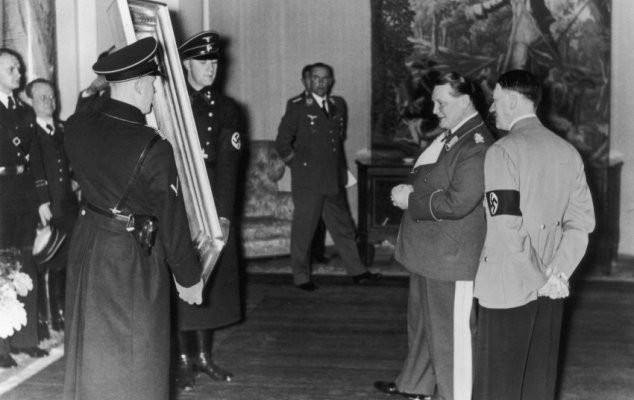For the first time, an American court has ruled that Germany could be sued for the return of Nazi-looted art and artifacts in the US.
In a landmark ruling, a Washington court on Friday granted permission to the descendants of Jewish art collectors to sue Germany in the US over objects obtained from their ancestors under duress during the Nazi era.
The decision comes three years after a German commission ruled that the former Jewish owners of the collection, known as the Welfenschatz or the Guelph Treasure, were not forced by the Nazis to sell it.
The Washington court ruled that claims regarding the collection, which Dresdner Bank had purchased on behalf of Hitler’s deputy Hermann Göring in 1935, could be filed in a US court.
This is the first time that an American court has ruled that Germany could be sued for the return of Nazi-looted art and artifacts under the US Foreign Sovereign Immunities Act.
Heirs to the consortium of Jewish collectors that bought the 82-piece collection in 1929 as an investment have been demanding the return of the portion sold to Hermann Göring for years. The artifacts in question are estimated to be valued at approximately US $227 million.
The treasure is on display at Berlin’s Bode Museum and is currently held by the Prussian Cultural Heritage Foundation.
Attorneys filed the suit in the US in February 2015, one year after the Limbach Commission, the German advisory board for Holocaust-related claims, rejected the plaintiffs’ contention that the 1935 sale had been forced.
In its ruling last week, the court rejected the German defendants’ contention that the Limbach Commission recommendation bars later litigation in a US court. It also agreed with the plaintiffs that the sale could have been forced and, therefore, a violation of international law.
Reacting to the ruling, Hermann Parzinger, head of the Prussian Cultural Heritage Foundation, said in a statement that he did not believe the case belongs in a US court.
Parzinger said the foundation would “look at the decision carefully and consider further steps.” He also emphasized that the foundation does not believe evidence shows that the sale was forced.
The Nazis organized looting of European countries during the time of the Third Reich. Plundering occurred from 1933 until the end of World War II, particularly by military units known as the Kunstschutz.
In addition to gold, silver and currency, cultural items of great significance were stolen, including paintings, ceramics, books, and religious treasures.
An international effort is underway to identify Nazi plunder that remains unaccounted for, with the aim of ultimately returning the items to the rightful owners, their families or their respective countries.
Many Jewish families have been fighting to reclaim ownership of family heirlooms which are currently held by museums and other institutions around the world.
By: World Israel News Staff





